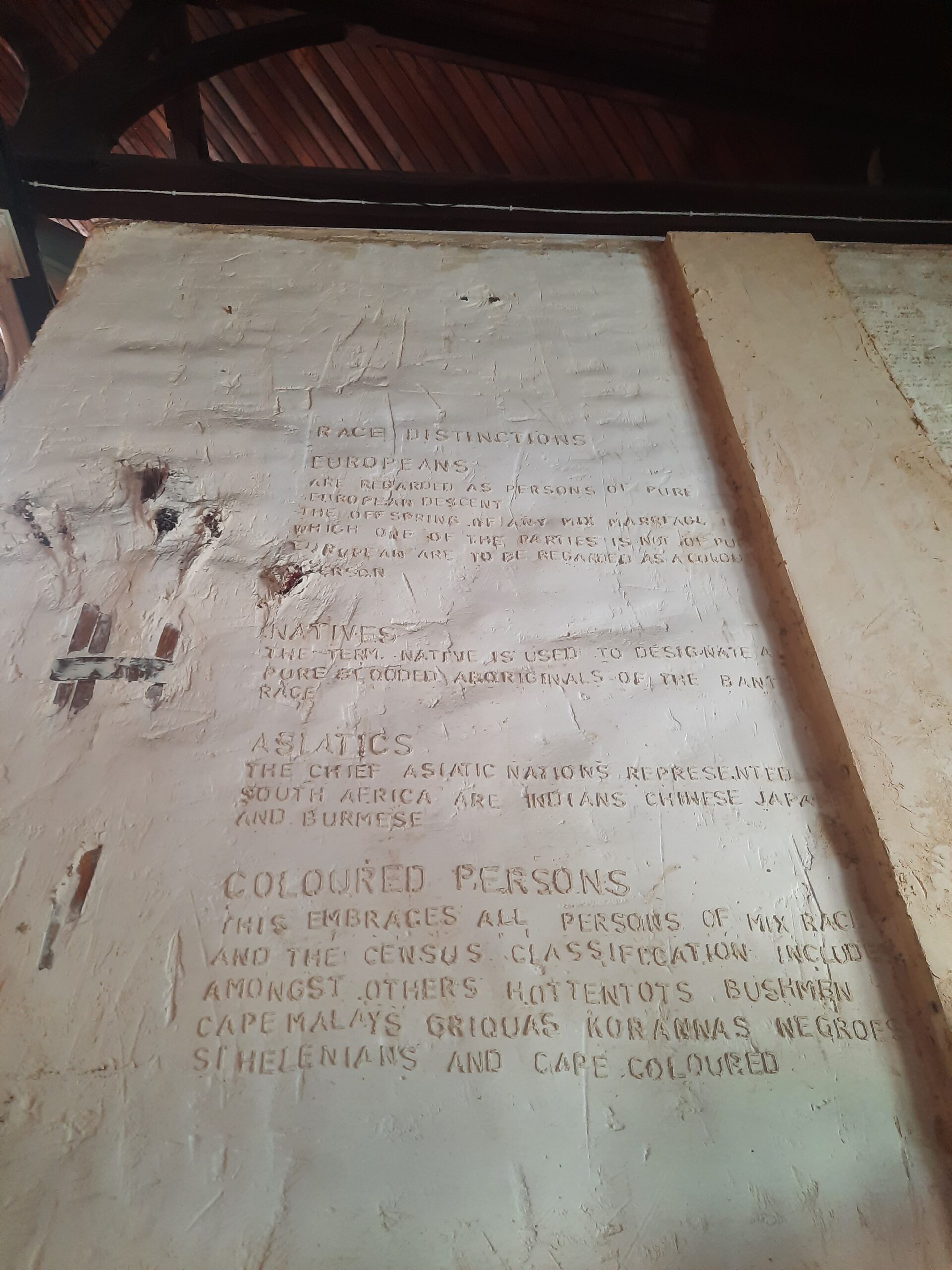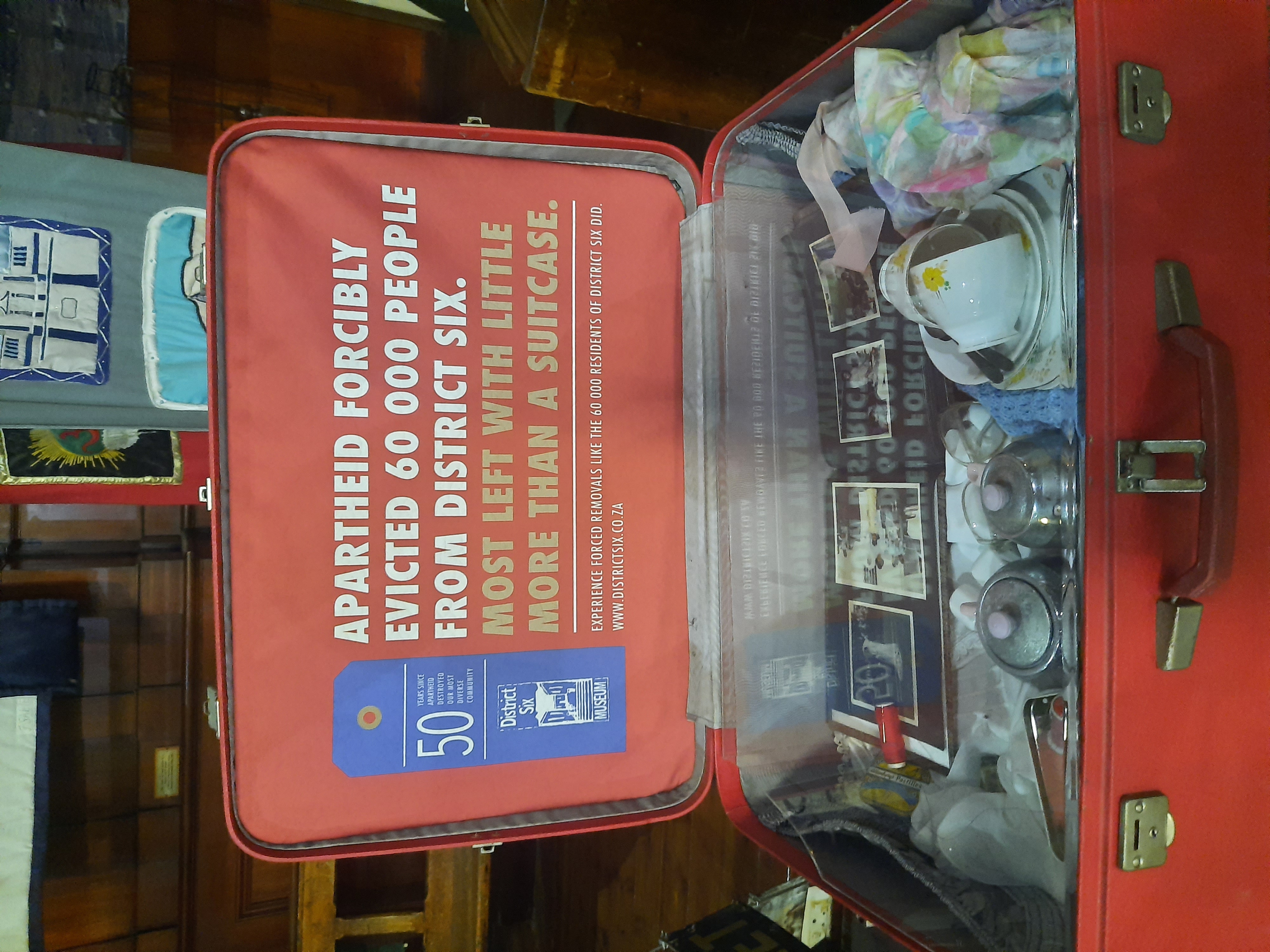
The Violences of Apartheid and Striving for Balance
A week has gone by since we first hit the ground running in Cape Town. Our extra-curricular plans within surrounding communities have built upon our lectures to further our historical understanding of the geographical context we are positioned in. We went to the District Six Museum after class to learn about how marginalized peoples who were native to the area were forcibly displaced from their homes during formalized apartheid. We only had about 35 minutes to look at the museum since we were tight on time, but I was able to read some thick descriptions about former residents’ lives, see what the cultural milieu was at the time of disruption, learn about resistance and feelings toward the violence, and view physical remnants of the spaces that were disturbed by harmful forces. There were objects that encapsulated the racist nature of apartheid, including a bench that I legally would not have been able to sit on at the time of implementation that said “Europeans only.” I saw suitcases filled with essentials and personal items that were modeled after those used by the original residents to move their uprooted lives to a new location. The written accounts of the ex-residents about the trauma they endured and the vivid lives they lived within their community moved me and made me think about my fears regarding the start of gentrification in my hometown. I was not alone in being able to relate to localized history as evidenced by the comments left by people from all around the world who had previously visited the museum. The existence of the District Six Museum is resistance against apartheid in itself, demonstrating that the evicted individuals that made up District Six pre-apartheid were complete human beings with rich daily experiences and profound emotions that contributed to the strong legacy of the community. Everyone should make an honest attempt to visit educational sites like the museum and the slave lodge we visited last week to learn about how systems of inequity and brutalizing violence continue to survive through different mechanisms, informal processes, and daily personal interactions that we can work together to stop. I feel privileged to be able to visit these places of immense historical, cultural, and political significance despite having a packed schedule. It is exhausting having to balance different sectors of my life that continually shift to accommodate moving components of the program. Almost every week so far, I have caught myself being frustrated about not having enough energy or time to fulfill my personal and religious needs. Academics tend to come on top in my list of priorities, which aids my learning until my lack of rest and balance impedes on my capacity to be reflexive with my experiences and lessons. I have not completely found balance and doubt that time will ever come since I am part of a traveling academic program, after all. My goal is to continue actively prioritizing myself more highly until the end of the program to prevent burnout and promote my wellbeing, which necessitates saying “no” more to group plans I feel pressured to participate in for fear of missing out on socialization and entertainment. With perseverance, courage, and planning, I will achieve increased balance to maximize my happiness and development.

